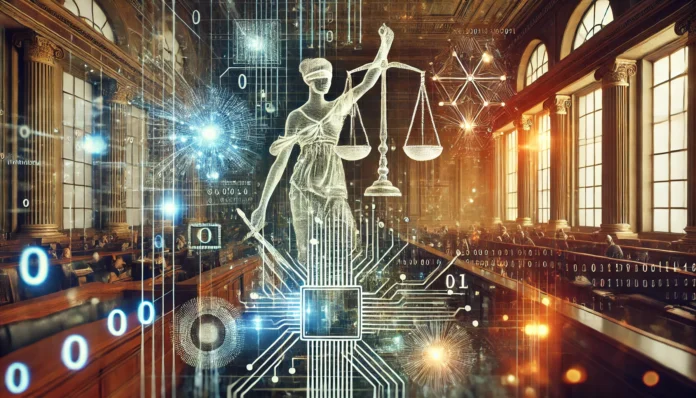The legal world is changing faster than ever, and we’re all feeling the effects.
When technology touches every part of our lives, how do we ensure the law keeps up?
This is where beyond bytes and bits: law craft in the information age comes into play.
It’s not just about rules; it’s about creating frameworks that work in a tech-driven society.
So, what are the challenges?
What does it take to build laws that protect without stifling innovation?
Let’s break it down.
The Meaning Behind Beyond Bytes and Bits: Law Craft in the Information Age
Law craft isn’t just a fancy term.
It’s about designing laws that balance human needs and digital realities.
This means rethinking concepts like privacy, ownership, and accountability.
For instance:
When you upload a photo to social media, who owns it?
You, the platform, or the internet as a whole?
And when an AI writes a song, who owns the copyright?
These questions are no longer hypothetical.
They’re real-life legal puzzles.
Crafting laws for the information age requires an entirely new approach—one that goes beyond bytes and bits.
Key Challenges in Law Craft for a Tech-Driven Society
1. The Privacy Problem
Every app, device, and platform wants your data.
Your location, preferences, shopping habits—it’s all tracked.
This raises the question:
How much privacy are we willing to give up for convenience?
Example:
The Cambridge Analytica scandal exposed how personal data could be weaponized.
It wasn’t just a wake-up call for individuals but also for lawmakers worldwide.
Governments responded with stricter regulations.
The General Data Protection Regulation (GDPR) is one of the most well-known efforts to address data misuse.
But even GDPR can’t account for every privacy concern.
The challenge is clear:
How do we ensure companies handle data responsibly while allowing innovation to thrive?
2. Cybersecurity vs. Individual Freedom
Online threats are everywhere—hacking, identity theft, ransomware.
Governments need tools to protect citizens, but where’s the line?
If laws give authorities too much power, it could lead to over-surveillance.
Too little power, and cybercriminals go unchecked.
Example:
The U.S. Patriot Act sparked global debates about government surveillance.
While intended to combat terrorism, critics argued it infringed on personal freedoms.
The lesson here?
Law craft in the information age must strike a careful balance.
3. Accountability in the Age of AI
AI is no longer science fiction—it’s shaping industries and influencing decisions.
But what happens when an AI system makes a mistake?
Real-life dilemma:
In 2016, an AI-driven chatbot from Microsoft started tweeting offensive comments.
Who’s responsible? The AI, its developers, or the platform hosting it?
These aren’t small questions.
They’re central to crafting laws that hold technology and its creators accountable.
How Beyond Bytes and Bits Shapes Business and Society
Smart Contracts and Blockchain
Blockchain technology introduced smart contracts—agreements that automatically execute when conditions are met.
No lawyers, no paperwork, just code.
Sounds perfect, right?
But what if the code has a flaw?
Case in point:
In 2016, a blockchain project called The DAO faced a $50 million exploit due to a smart contract bug.
Lawmakers had to scramble to figure out how to regulate these decentralized systems.
Global E-Commerce and Taxation
When you shop online from a global store, whose rules apply?
This is a daily legal headache for e-commerce businesses.
Example:
In 2019, France introduced a digital tax targeting tech giants like Amazon and Google.
It sparked a global debate about how to fairly tax companies operating across borders.
These examples highlight why beyond bytes and bits: law craft in the information age is essential for modern commerce.
FAQs on Beyond Bytes and Bits: Law Craft in the Information Age
What Does Law Craft Mean in a Digital Context?
It’s about creating laws that address the unique challenges of the tech-driven world.
This includes areas like data privacy, cybersecurity, and intellectual property.
How Can AI Be Regulated Fairly?
By ensuring transparency and accountability in AI systems.
For instance, companies using AI should disclose how their algorithms work and ensure they don’t reinforce biases.
Is It Possible to Protect Privacy in a Data-Driven Economy?
Yes, but it’s not easy.
Strong laws like GDPR and California’s CCPA help, but they need to evolve alongside technology.
Can Technology Replace Lawyers?
Not entirely.
While AI can assist with tasks like contract review, it lacks the human judgment needed for nuanced legal decisions.
The Role of Lawmakers in the Information Age
The pace of technology demands proactive lawmaking.
Lawmakers must:
- Collaborate globally, since the internet has no borders.
- Consult technologists to understand the systems they’re regulating.
- Be flexible, updating laws as new challenges emerge.
Real Stories That Show Why Law Craft Matters
Social Media and Free Speech
Social media platforms like Twitter and Facebook wrestle with content moderation.
How do you balance free speech with the need to remove harmful content?
In 2021, India introduced strict social media laws.
Tech companies argued the rules threatened free expression.
The debate is ongoing, with no clear answers yet.
AI Bias in Hiring
Several companies have used AI to screen job applications.
But studies revealed that these systems often favored certain demographics over others.
Laws are now being crafted to address bias in automated decision-making.
Why Beyond Bytes and Bits: Law Craft in the Information Age Matters
This isn’t just a legal or tech issue—it’s about fairness in a rapidly changing world.
Every law crafted today shapes how we live, work, and interact tomorrow.
From smart contracts to AI ethics, beyond bytes and bits: law craft in the information age is about creating a better balance.
It’s not about controlling technology.
It’s about ensuring that technology serves people, not the other way around.
So, the next time you hear about a data breach or a new AI breakthrough, think about the legal battles happening behind the scenes.
They’re shaping the rules that govern our digital lives—and our future.
